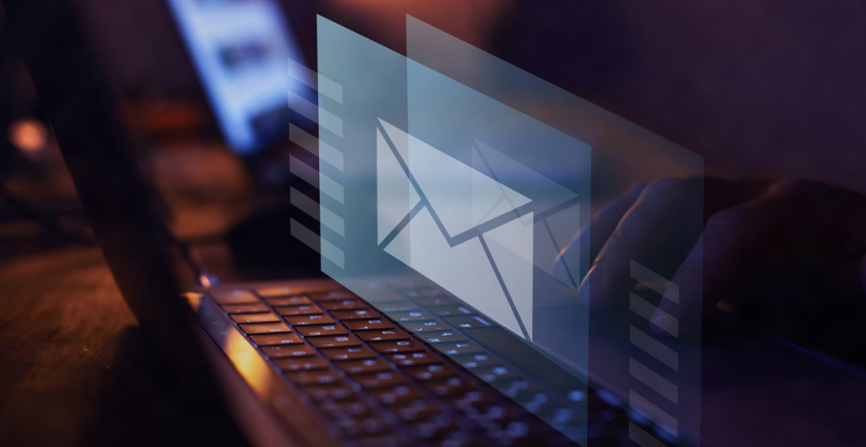
Email Security Best Practices
Since organisations rely heavily on email to communicate and conduct business operations, cybercriminals commonly target email as an entry point to access networks and breach valuable business data. Indeed, a single misclick from an employee might be all a cyber-criminal needs to breach an organisation’s cyber-defences. This is why email security is so vital.
Following a cyber-security breach, organisations may suffer financial, reputational and intellectual property loss. Therefore, it is important for businesses to invest in email security and follow best practices to ensure their data and operations are protected from cyber-security threats. The following are some email security best practices to prevent and mitigate the risk of email-related cyber-attacks:
- Implement employee training. Employees are your first line of defence. Investing in a security awareness training programme can help employees navigate email security risks by educating them on potential threats and avoiding situations that could put data and networks at risk.
- Improve password management. Many people recycle passwords, making it easier for cybercriminals to compromise data across multiple accounts. Employees should use a unique password for their work device that contains a combination of upper- and lowercase letters, symbols and numbers and change their passwords regularly.
- Enable multifactor authentication. Multifactor authentication strengthens email security by adding an extra layer of protection. When users log in to their email account, they must complete an additional step, such as entering a unique code sent by text to their smartphone, to gain access.
- Make employees aware of phishing emails. Cyber-criminals often impersonate legitimate senders to steal sensitive information, gain access to operational systems or initiate fraudulent payments. Phishing emails often use language that suggests a sense of urgency and pressure users to complete an action quickly. Train employees to spot and report these scams.
- Encrypt emails, communications and attachments. Encryption can ensure that emails and their attachments are only read and received by the intended person. It can also help prevent malware attacks through email by ensuring that cyber-criminals don’t intercept sensitive email data.
- Avoid public wi-fi. One of the best ways to keep email information safe is to avoid connecting to public wi-fi. In addition, investing in a virtual private network, better known as a VPN, can secure an encrypted connection between devices and the internet.
Cyber-risks & Liabilities
• Access email only on company-approved devices. Devices that don’t have the proper email security tools and measures may be vulnerable to cyber-criminals. Utilising company-approved devices for all work-related communications can help ensure emails remain secure.
- Utilise endpoint protection solutions. Endpoint protection solutions look for critical information included in emails that appears out of the ordinary, such as an abnormal address, misspelt words or suspicious links, and then filter them out before they can be received and opened.
- Log out of email accounts. Leaving email open on any device accessible to others can lead to security issues.
- Back up data regularly. Although the implementation of sound email security practices reduces the potential for loss, vulnerabilities still exist. Therefore, one of the most important security measures to minimise the potential damage and devastation of a ransomware attack is backing up critical files regularly. Copies should be kept in multiple locations, including on physical hardware and in the cloud.
Conclusion
A well-designed ASM strategy not only helps protect an organisation from cyber-attacks—it is also a practice frequently required by underwriters to obtain cyber-insurance. For additional cyber-risk management information and insurance solutions to help protect your company from the financial effects of a cyber-attack, contact us today.
